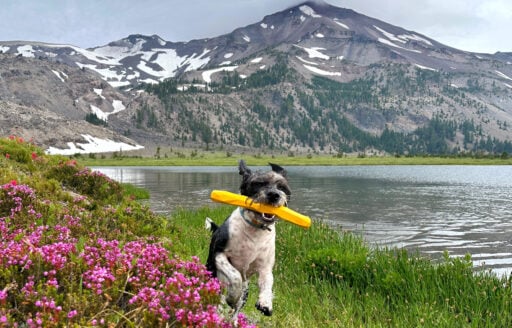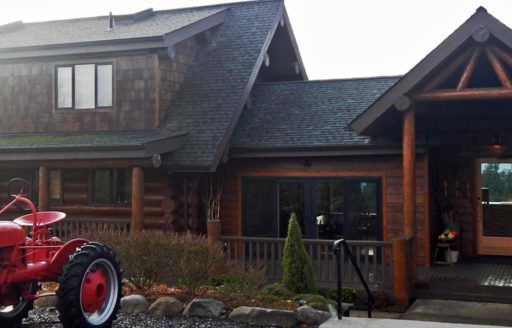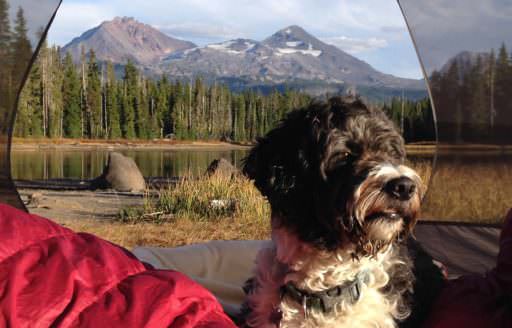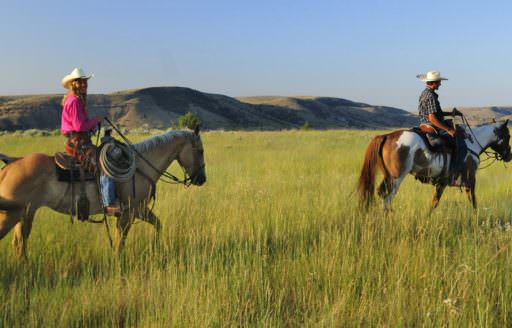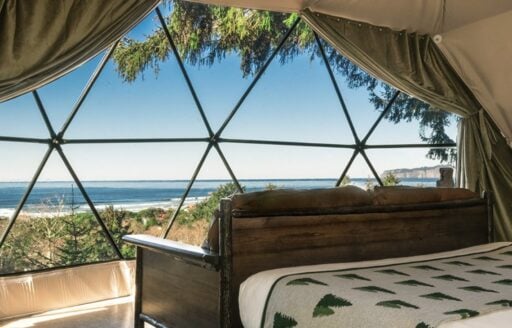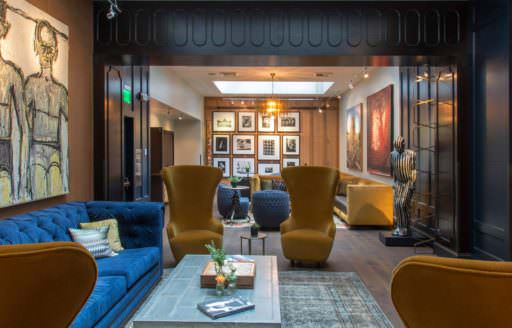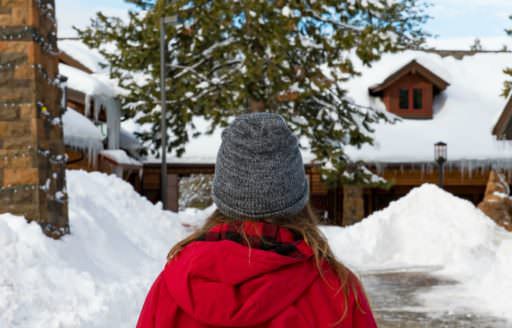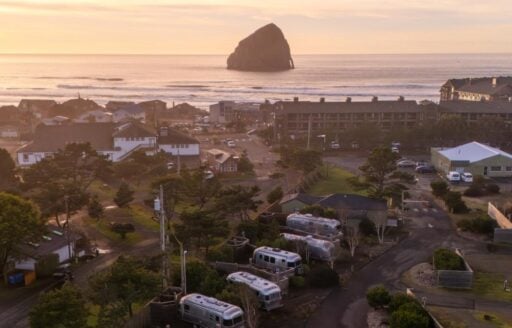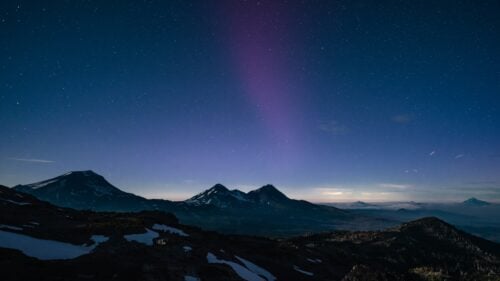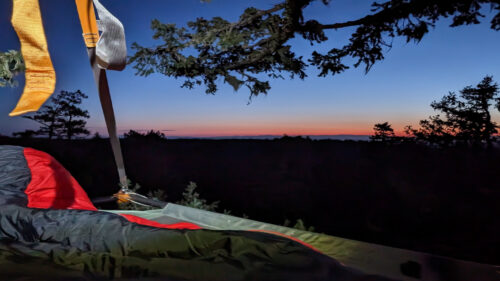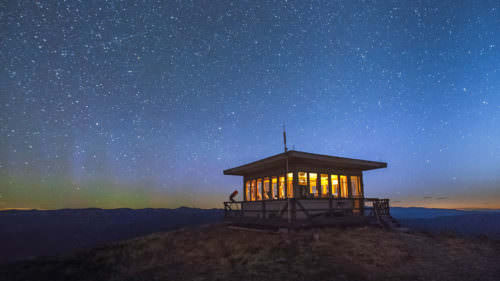Where would you like to stargaze in Oregon? ✨
With large swaths of night sky free from light pollution, Oregon is home to some of the best stargazing on the planet. Whether you’re camping in Oregon’s state parks, enjoying a ranger-led stargazing experience or venturing into remote areas, the stars await.
Where to Stargaze in Oregon
Oregon is home to half a dozen official dark-sky areas designated by DarkSky International, noted for their communities’ commitment to reducing light pollution. Many of these communities host guided nighttime tours in the summer months. They include:
- Oregon Outback International Dark Sky Sanctuary (Southern Oregon)
- Oregon Caves National Monument (Southern Oregon)
- Prineville Reservoir State Park (Central Oregon)
- City of Antelope (Central Oregon)
- City of Sisters (Central Oregon)
- Cottonwood Canyon State Park (Eastern Oregon)
Where to find Star Parties in Oregon
Plan a trip around a free summer star party, hosted by experts often at the above locations as well as these parks, where the night skies are typically clear and excellent spots for viewing. Beginner stargazers and expert astronomers alike gather to see the planets, moon, stars and other celestial sights and enjoy the night skies among community:
- L.L. Stub Stewart State Park (Portland Region)
- Rooster Rock State Park (Mt. Hood/Columbia River Gorge)
- Wallowa Lake State Park (Eastern Oregon)
- Shore Acres State Park (Oregon Coast)
When to Stargaze in Oregon
These annual events are especially great times to plan a trip: Summer solstice (June), lunar viewing (July), Perseid meteor shower (August), autumnal equinox (September).
Top Tips for Stargazing in Oregon
- If you’re looking for clear skies, check the forecast to avoid heavy cloud cover.
- If you’re new to night-time excursions consider joining a guided night hike or stargazing tour, attending a star-party event or participating in a ranger-led experience. Many tours include transportation, food, lodging and expert navigation.
- If you go on your own you may want to bring a camera and tripod, telescope and a paper map along with your Ten Essentials and download an app for stargazing.
- Most headlamps have a red-light setting that will let you see at night but won’t disturb wildlife or other stargazers.
- Be prepared as you travel to remote areas, where cell service and gas stations are limited.
- Support and be respectful of nearby small communities as you travel, and always be sure to pack everything out.


